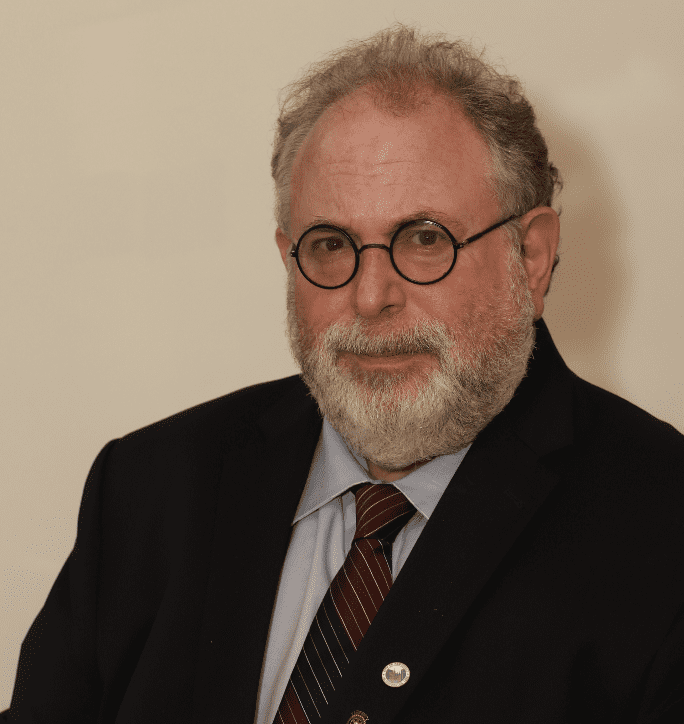Search Posts
Recent Posts
- We Cook! Mill’s Tavern’s Heirloom Tomato Caprese with Basil Gel and Balsamic Drizzle June 26, 2025
- CODAC a one-stop center for whole person care – G. Wayne Miller, Ocean State Stories June 26, 2025
- To Do in RI: Collector-Con Providence 2025 – Meet Tony Jones! June 26, 2025
- Rhode Island Weather Forecast for June 26, 2025 – Jack Donnelly June 26, 2025
- RI Veterans: Did you know? 26.06.25 (Golf – Early Retirement – Events – Benefits) – John A. Cianci June 26, 2025
Categories
Subscribe!
Thanks for subscribing! Please check your email for further instructions.

First Senate Aging Committee hearing of new congress looks at wellness – Herb Weiss
By Herb Weiss, contributing writer, aging issues
Over a week after the 119th Congress began on Friday, Jan. 3, U.S. Senator Rick Scott (R-Fla.) took the reins of the U.S. Special Committee on Aging, becoming its 20thchairman. He follows in the footsteps of former Chairman Sen. Bob Casey (D-Pa.), a 3-term Democratic Senator, who lost his reelection bid for a fourth term to Republican Dave McCormick. a West Point graduate, combat veteran and bronze star recipient, a national security, expert, and former hedge fund manager.
On Wednesday afternoon, on Jan. 15 in SD 106, Scott chaired the first Senate Aging Committee hearing of the new Congress, entitled “Improving Wellness Among Seniors: Setting a Standard for the American Dream.” The hearing, lasting two hours and seven minutes, put the spotlight on America’s senior health, personal and community safety and the benefits of socializing and working later in life.
While established in 1961 as a temporary committee, the Senate Aging Committee became a permanent Senate committee in 1977. Over the years, aging advocates say that committee has operated in a bipartisan manor. And the Florida Senator says he will carry on this tradition.
In his opening statement, the Republican Chairman stressed that aging is not a partisan issue. “Whether or not we’d like to admit it or note, we are all aging, and it impacts every single one of us regardless of political party” he said.
“I believe we have a big opportunity in this Committee to work in a bipartisan manner to support and improve the lives of America’s current senior citizens and create change that will improve both the lifespan and health span of future generations, said Chairman Scott, pledging that he and his staff will “work together with all the members here to find common ground and ways we can advance or shared goals.”
As chairman, Scott’s goals are to make sure every senior can say that they are physically healthy, financially secure, live in a safe community and has family and community support. “If you have all four of these things, your senior years can be the best time of your life,” he notes.
Kristin Gillibrand (D-N.Y.), the ranking member who has served on the Senate Aging Committee since 2009, congratulated Scott for assuming his chairmanship position, “I look forward to working closely with you during this Congress,” she said, in her opening statement.
According to the Democratic Senator, the Senate Aging Committee has a long history of bipartisanship. “I hope we continue that tradition to advance an agenda that makes sure our loved ones can age with the support they need and with dignity and respect,” she said.
Gillibrand reported that she hopes to continue working on lower prescription drug costs, continuing to guard against financial scams, and protecting programs that older adults and people with disabilities rely on, such as Social Security, Medicaid, and Medicare.
The ranking member noted that this hearing would address how to promote wellness among older adults. “We’ll address issues like accessible housing, financial security, and engagement with the community,” she said, the importance of giving people the tools to live and age well. “Those tools are different for everyone, but include resources like nutrition assistance programs, Area Agencies on Aging, Centers for Independent Living, supportive housing programs, Medicare and Medicaid, and Social Security,” she added.
Ways to Improve the Health and Wellness of the Nation’s Seniors
During his testimony, Sheriff Bill Prummell rattled off a list of proactive and effective ways that the Sheriff’s Office serves and protects seniors and disabled adults residing in Charlottee County, Florida. Prummell shared a number of innovative programs with the Senators that could easily be replicated throughout the nation.
Here are just a few…
According to Prummell, who serves as President of the Florida Sheriff’s Association, his office utilizes trained volunteers to reach out weekly to isolated age 60 and over seniors and disabled adults. The volunteers get to know these individuals thru their weekly phone calls, by giving them Christmas gifts and mailing birthday cards to these individuals on that special date, too.
Meanwhile, Prummell noted that efforts like Project Lifesaver (using GPS tracking bracelets to locate wanderers) and DNA Scent Kits (enabling participants to keep a DNA scent article at home to be used by K9 Deputies) to assist his deputies in finding missing wanderers.
And, Operation Pill Drop, even allows individuals to dispose of expired or unwanted medication in drug receptacle boxes at participating district offices, he says, noting that this keeps family members and others from accessing the senior’s medication cabinet to take old and unused medications.
While she has seen dramatic improvements in preventative and health promotion programs, “we still have a long way to go,” says Witness Maria Alvarez, Executive Director of New York Statewide Senior Action Council. She used the Senate Aging Committee hearing as a bully pulpit to call for a 2025 White House Conference on Aging be held to “help the country chart a course for addressing the needs of the growing older population as 20 percent of this country is now over the age of 65.”
“But we cannot ignore the need to recognize that having health care and preventive services available is not sufficient if they are not affordable or if discrimination, actual or perceived persists,” Alvarez says.
According to Alvarez, along with Social Security and Medicare and Medicaid, the Older Americans Act “has had seismic effect on the elderly population. “These programs provide a framework that seniors can rely on to continue to live and thrive and live with dignity, she says.
Witness Dawn Carr, Ph.D., director of the Claude Pepper Center at Florida State University, told the attending Senators that it’s time to reframe aging policy to promote healthy aging, noting that this “will require an expansion of our current aging-related policy goals.” These goals must emphasize supporting healthy aging throughout a person’s lifespan, she said.
“It means expanding healthy aging research, improving health care literacy and access, and incentivizing health behaviors and health interventions based on optimal health function goals,” says Dr. Carr, adding that this means “thinking about viewing older people as a critical resource that improves our society, rather than as a barrier to societal progress.”
Finally, during her testimony, Professor Emerita Dr. Susan Hughes, Ph.D., in the Division of Community Health Sciences and Founding Director of the Center for Research and Health and Aging at the University of Illinois Chicago (UIC) described the imitations of current funding for health promotion programs for older adults, calling for “transformational re-thinking” of a historical focus on post-acute care. According to Dr. Hughes, this has resulted in funding gaps in supporting long-term care and preventative programs for older adults, especially for those with chronic conditions like arthritis.
Increased funding for wellness programs could reduce health care costs and improve out outcomes, she says, citing the success of UIC’s Fit & Strong! Program, a low cost, evidence-based intervention that helps senior’s manage osteoarthritis through physical activity.
But, despite the success of programs like Fit & Strong! lack of funding and reimbursement mechanisms, limit their impact, charges Dr. Hughes. calling for the Older American’s Act (OAA), particularly Title III D (or a new title), to support the funding of physical activity programming.
“Ultimately, however, we will see much bigger returns if we develop demonstrations and/or regulations or reimbursement mechanisms that support the dissemination of and access to evidence-based health promotion programs as extensively as possible through Medicare, says Dr. Hughes.
Walking the Talk
“Helping older people is a bipartisan issue — and the Aging Committee has a history of addressing the challenges that seniors face. The work that the Senate Aging Committee does is especially critical today, with 10,000 Baby Boomers turning 65 every day, and given the uncertainty about the future of critical programs like Medicare, Medicaid, and Social Security,” says Max Richtman, President & CEO, National Committee to Preserve Social Security and Medicare.
Taking the reins of the Senate Aging Committee, Chairman Scott pledges to work with Ranking Member Gillibrand in a “bipartisan manner” to improve the lives of America’s seniors. Will he walk his talk or are these just empty words?
Republicans and Democrats on the Senate Aging Committee MUST work together to push the Republican-controlled Senate to allocate increased funding for the AOA and Medicare, or create additional reimbursement mechanisms to promote health and wellness programs. Research tells us that these programs increase physical activity, brings people together to socialize, and enhances brain health, and even cuts medical costs. Even with a federal budget deficit, in this case Congress must not be penny wise and pound foolish.
To watch this Senate Aging Committee hearing go to
___
To read more articles by Herb Weiss, go to: https://rinewstoday.com/herb-weiss/

Herb Weiss, LRI -12, is a Pawtucket-based writer who has covered aging, health care and medical issues for over 45 years. To purchase his books, Taking Charge: Collected Stories on Aging Boldly and two sequels, compiling weekly published articles, go to herbweiss.com.

